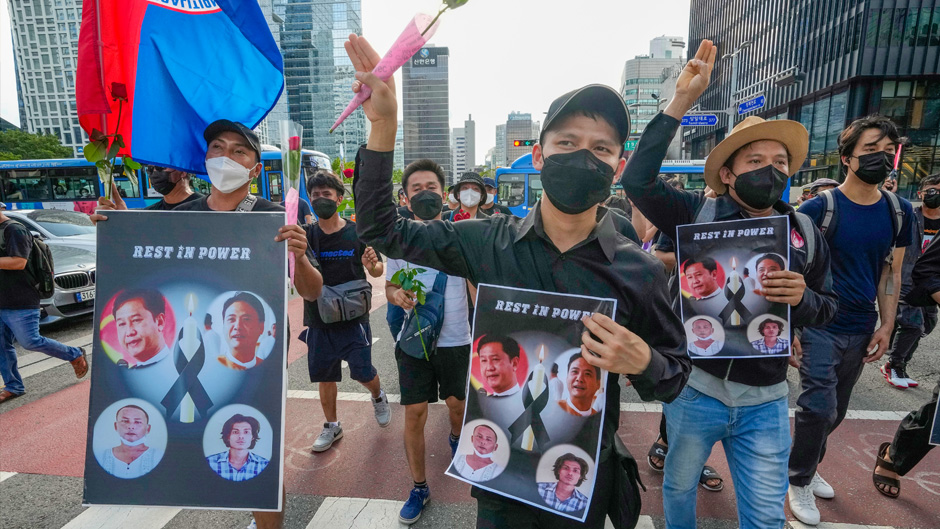China has no intention of exerting its influence over its Asian neighbor and condemning the Myanmar junta for the recent executions of four political prisoners who were arrested during the military coup in early 2021 and convicted of “terror acts” in a closed-door trial, asserted June Teufel Dreyer, a professor of political science in the University of Miami College of Arts and Sciences and a Far East specialist.
“China has long been the friend, and often the only friend, of the Myanmar military,” noted Dreyer. “The two countries share a common preference for authoritarian leadership, and hence China will oppose the democrats rather than support them.”
The United States and other nations around the world condemned the executions, the first in decades in Myanmar, as “reprehensible acts of violence” and urged China to pressure the junta to end the sentences.
Yet Dreyer pointed out that the Myanmar junta has rewarded China with contracts for infrastructure projects like dams, railroads, and upgraded port facilities, and that the country, formerly known as Burma, exports rare earth metals to China.
Though local people have often raised objections, the Chinese companies have paid little attention to the environmental deterioration caused by the mining practices, and, apart from occasional demonstrations, the Myanmarese can do little to halt the operations, Dreyer explained.
“The military will quell the demonstrations; and nearly always, the construction and destruction continue,” she said.
From 1962 to 2012, Myanmar was among the most censored countries on the planet. A fledgling democracy was reinstated for a few years, then in February 2021 the military seized power again.
According to the UN Rapporteur, some 140 people have received death sentences in Myanmar and international observers are concerned that more executions are forthcoming. The Assistance Association for Political Prisoners reported that the junta has killed some 2,100 civilians and arrested 14,800 others since it took power in the February 2021 coup.
“Democracy in the region is represented by Aung San Su Chi, whom the military leaders have managed to neutralize on several occasions,” Dreyer said. “Even when briefly in power, she could do little to stop the massacre of the Rohingya minority [Muslims, being persecuted by the Buddhist majority].”
The shadow of China, considered to be the largest autocracy in the world, looms especially large in Southeast Asia. Laos and Cambodia are also firmly under Chinese control, and relations with Thailand are good as well, according to Dreyer. Relations with Vietnam remain prickly, as they have been throughout history, yet other than with this country, the land countries of Southeast Asia are firmly under Chinese control.
Democracy and related freedoms are under siege across the globe. A Freedom in the World 2021 report documented that global freedom declined for the 15th consecutive year.
Gregory Koger, professor and chair of the Department of Political Science, noted that scholars studying the causes of the global decline of democratic governance have identified a range of factors that include the backlash expansion of globalized trade and culture, declining trust in political elites following the Great Recession of 2008-2010, the global pandemic, and the role of social media in promoting disinformation and increasing social tensions.
“Democratic citizens and leaders need a greater appreciation of the threat of authoritarianism, both as an internal threat and as hostile regimes around the globe,” Koger said. “They need to pass laws and reinforce norms to protect their democratic systems and to collaborate with democratic regimes abroad while reducing their economic dependence on authoritarian regimes.”
China shares its southeastern border with Myanmar and considers the country in its backyard, according to Dreyer. An unstable Myanmar is China’s major concern in terms of its own security, and supporting the junta seems to be the best way to ensure that stability, she noted.
In Myanmar, the junta’s overriding concern is simply maintaining its power, said Dreyer, formerly the senior Far East specialist at the Library of Congress.
“To the extent it can create prosperity, that’s good for stability,” Dreyer asserted. “But one suspects that most of the prosperity ends up with the junta and its associated partners, not with the poorer people.”

